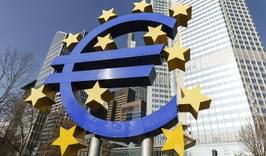Policy & Government
Central Banks: How Low Can You Go?
Denmark, Sweden, the Eurozone, Switzerland and Japan. The Central Banks of these countries, listed in chronological order, are the pioneers of negative interest rates. Under conventional monetary policy, banks earn income (interest) from cash reserves parked at the Central Bank. Under negative interest rates, banks are penalized and charged a fee for holding cash.
23 Jun 2016
Naira drop hits investments and lending with mixed results
The relaxation in Nigeria’s FX policy has led to a significant devaluation of the naira. Investment will still likely be slow on the local currency side, but foreign currency investment could soon rise. Nigeria’s banking sector will likely suffer in the short term from the naira’s devaluation, but could see a pickup in the long term through dollar inflows.
22 Jun 2016
When yuan met yuan: potential Chinese bank rules could prompt FX convergence
The People’s Bank of China’s decision to consider allowing local onshore banks to trade in China’s offshore market could lead to a convergence between the two, which would aid in the internationalisation of the renminbi and also assist in the development of the country’s bond markets.
22 Jun 2016
Not everything that falls goes up
It is natural for a country’s investment cycle to be more volatile than the GDP cycle, since investment decisions are more affected by the overall economic picture than by household consumption or government spending, which are more stable.
22 Jun 2016
European currencies stable despite Brexit woes
Although a Brexit vote will affect the global markets, the CEE region and in particularly the UK’s larger trading partners within the region such as Poland will be most heavily impacted. However, although concerns over Brexit have caused fluctuations within these markets’ currencies, they have remained relatively resilient over the course of the last month.
21 Jun 2016
Private beats public on EM debt concerns
Emerging market debt levels are on the rise. Public sector debt has grown substantially, largely from countries reliant on commodity exports. However the real concern is over EM private sector debts, which since the financial crash have been steadily increasing.
15 Jun 2016
Only Brexit clouds EM outlook
While emerging markets have benefitted from a dovish stance from the US Federal Reserve and low yielding developed market bonds, the threat of Brexit could cast a shadow over their performance.
13 Jun 2016
LatAm sees back-to-back annual recession for first time in 30 years
The World Bank has slashed growth forecasts across the globe, revising down its previous figure of 2.9% to 2.4%, and has warned against a further slowdown in the world’s major emerging markets. Whilst sluggish growth persists across most EMs, the World Bank predicts Latin America’s economy will experience the first back-to-back years of recession in more than 30 years.
10 Jun 2016
Mozambique keeping its head above water… just
Mozambique’s ability to prevent a default is looking increasingly tenuous as the government struggles to cover its quasi-sovereign loan repayments. Investor confidence in the country has been significantly dented, and despite remaining surprisingly resilient, government bonds are likely to be hit hard by headline news risk, especially from the IMF.
10 Jun 2016
Nigeria’s FX policy won’t harm foreign bonds
Nigeria’s Eurobond roadshow in London has demonstrated that there would be appetite for a sovereign bond, despite lingering concerns over the country’s FX policy among investor and unwillingness on the Nigerian side to fully devalue the naira. Although local debt may fluctuate, there is unlikely to be any significant effect on the country’s foreign bonds.
10 Jun 2016









